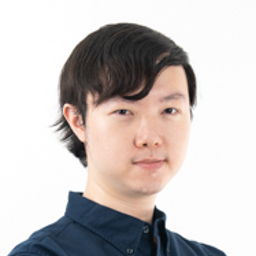New Singapore Dream requires 'equal opportunities for all' regardless of background, educational pathway: DPM Wong


 PUBLISHED ONOctober 27, 2023 10:25 AMByKhoo Yi-Hang
PUBLISHED ONOctober 27, 2023 10:25 AMByKhoo Yi-HangThe Singapore Dream has changed - and so too must the culture and policies that surround Singaporeans.
Part of achieving this new Singapore Dream requires that we have equal opportunities for all regardless of one's background and educational pathway, Deputy Prime Minister Lawrence Wong said in an opening remark at the launch of the Forward Singapore Festival on Friday (Oct 27).
In order to do so, the government has increased investments in pre-school education over the last decade, with aims to provide 80 per cent of children here with enrolment in government-supported pre-schools by around 2025, according to the Singapore Forward report.
Forward SG is a nationwide engagement exercise headed by Wong that has involved more than 200,000 Singaporeans since it kicked off in June 2022.
The exercise sought to refresh Singapore's social compact - the glue that holds society together - given the challenges facing the island.
The 180-page report on Friday stated that there is now "near universal" enrolment in pre-schools especially at ages near five and six.
But the enrolment and attendance at pre-school for children from lower-income families at ages three to four years tend to be lower than the national average, the report said.
'We will therefore focus on uplifting young children from more disadvantaged backgrounds by spurring their enrolment and attendance in preschool, to close early developmental gaps," it said.
The government also aims to use a multi-pronged approach to facilitate and encourage enrolment by age three, such as providing full childcare subsidies based on income tiers and providing additional funding or manpower to select government-supported pre-schools.
"The additional resources will enable government-supported pre-schools to provide more timely and effective support to children from lower-income families," the report read.
Parents will also be engaged more frequently to ensure that they send their children to school regularly. There will also be measures implemented to help children with learning needs keep up with their peers.
Furthermore, 2024 will see the removal of 'Normal' and 'Express' streams, allowing for students to mix and interact freely.
Changes will also be made to how students with Special Educational Needs are treated, creating more inclusive environments for them to participate and live independently.
Merit will be redefined, with the Direct School Admission (DSA) being a greater avenue for children to pursue secondary education.
According to the report, about 10 per cent of students go through DSA to get admitted into secondary schools - a figure that is envisioned to increase, particularly for students from disadvantaged backgrounds.
The government also aims to develop more partnerships between schools via co-curricular activities and other programmes, including exposure to industries and overseas entities, creating more opportunities for students to excel.
But making full use of these opportunities will require time - which is why the government has also reduced exam frequency across the board, allowing students the breathing room to explore beyond their books.
"We must harness our collective efforts and energies, to build a stronger sense of identity, solidarity and unity. So that we are more resilient amidst adversity, so that we can build a better Singapore together - not just for today, but also for tomorrow," DPM Wong shared in his speech.
"These are the key ingredients in what we want the future Singapore to be. A more vibrant, a more equal and a more united country."
ALSO READ: This award-winning teacher plants wrong answers among students to keep them alert and analytical
For more original AsiaOne articles, visit here.